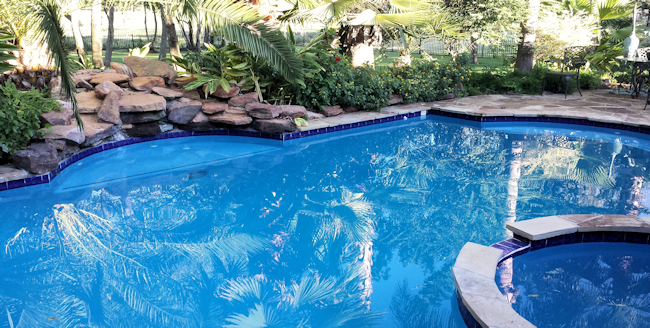Weekly Service Calls Not Enough for Salt Pools, Study Says
By Ben Thomas / 1.13.2011
Weekly chemical adjustments of salt-chlorinated pools are not sufficient to keep the water balanced, according to new research by the National Pool Industry Research Center. This conclusion is the result of a five-month study commissioned by the Independent Pool and Spa Service Association.
“With a once-a-week service visit, we found that the water chemistry of a salt-chlorinated pool will not stay within the parameters that IPSSA considers acceptable,” said Lance Sada, IPSSA’s liaison to the NPIRC.
Scientists at the research center monitored salt-chlorinated pools on a weekly basis, making all chemical adjustments manually — the pools used no automated chemical feeding, and no ORP controller.
With weekly manual adjustments to the chlorine output, the pools’ free chlorine concentration remained acceptably stable throughout the study. The water’s pH, however, proved to be more difficult to control. Every time the pH was adjusted into IPSSA’s “ideal” range of 7.2 to 7.6, it was found to drift up to 8.0 or above within three days or less.
As pH affects many other chemical factors, such as oxidation reduction potential (ORP) and total alkalinity, IPSSA has stated that weekly service calls are insufficient to keep water chemistry in balance. According to the organization’s board, the need for more frequent chemical monitoring and adjustment is “strongly indicated” by these results.
This finding isn’t entirely unexpected, as many service techs had noticed an upward pH drift in salt-chlorinated pools. Still, IPSSA members say they’re surprised at the speed with which it occurs.
“This pH drift is something we’d suspected for a while,” said Nathan Smith, director of IPSSA’s Region 6 (Inland Empire, Calif.). “But it’s going to be helpful for us to have an actual set of scientific data to demonstrate what’s happening chemically.”
The NPIRC, located at California Polytechnic State University in San Luis Obispo, was founded in 2004 to provide a scientific environment for testing pool chemistry. Though the center was launched by a partnership between Cal Poly and the National Plasterers Council, the NPIRC board is comprised of professionals from all segments of the industry.
IPSSA has been supportive of the research center for years, but this study marks the first time the organization has commissioned a specific research program. With sufficient funding and member interest, however, the organization’s board hopes to make this the first of many studies that will help service techs in the field.

